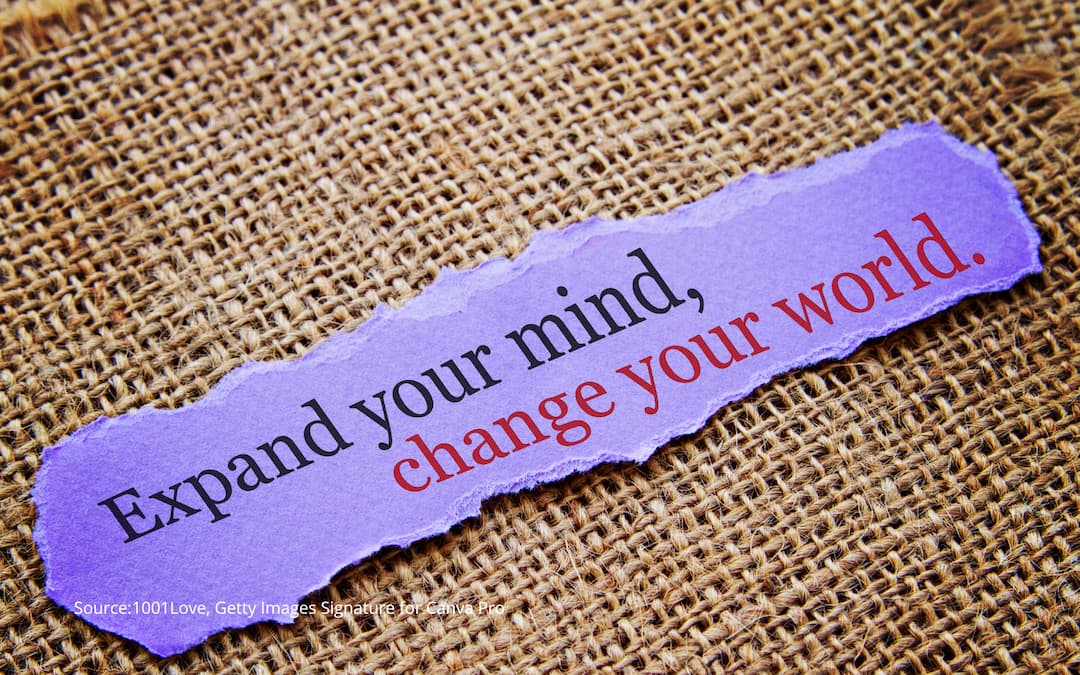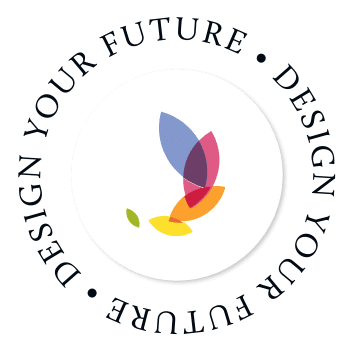It is a common problem. We encounter a situation and feel that we “should” respond in a certain way, yet we hesitate. And that hesitation can be even more pronounced if there is any uncertainty about the situation or how we should behave given our role in the matter. Meanwhile, our subconscious mind is in overdrive, drawing from past experiences to help our decision-making process. It is at this point when cultural expectations can influence our decisions.
What are Cultural Expectations?
As human beings, we are all influenced by the world we live in because belonging is essential to our survival. For this reason, our need to belong is a significant motivator in how we respond to certain situations because we crave the protection of the social and cultural groups around us. Therefore . . .
Cultural expectations are the messages we internalize about what is and is not acceptable, given the standards of behavior and cultural norms put forth by our social systems.
Social groups come in many forms, including our family, community, friends, workplace, and even affinity groups. Within each of these groups are a set of expectations that dictate how one should behave to preserve unity.
Each group’s cultural norms, or ways of doing things, are often consciously communicated through rules, rituals, and actions. Other times, they are inferred, through language (what we say and don’t say), non-verbal communication, and patterns of behavior that, to the outside observer, may or may not make sense, depending on the context of the situation. When this is the case, group members must interpret these signals and make assumptions about the group’s expectations and rules.
It’s the way we interpret the messages from our social structures that creates cultural expectations. And this is a critical point because our interpretation may or may not be correct or relevant to our situation, yet we use this information as guidance when making choices.
What Are Some Examples of Cultural Expectations?

Cultural expectations permeate every social system in our lives and unconsciously drive many of our decisions. A great example of this centers around educational attainment.
The conventional wisdom in many social systems around educational attainment is that completing postsecondary education (community college, university, graduate school) is a necessity. This “wisdom” is so pervasive that many have internalized it as a fundamental truth versus a cultural expectation and wouldn’t dream of questioning it. However, below are a few examples of how this plays out in everyday life.
Cultural Expectations Among Families
Familial systems are responsible for setting the earliest cultural expectations. For example, higher education may symbolize upward social mobility for families. Or, perhaps it is a way to maintain status within the social system. When this is the case, such expectations can dominate decision-making.
For instance, we might choose schools based on reputational status (a brand), even though it may mean greater long-term financial instability due to higher student loans. Or, we might major in a field that is “safe” because our parents believe it “guarantees” employment, despite knowing that it’s a saturated field or malaligned with our interests.
Regional Expectations
Continuing the context of educational attainment, we may find ourselves in a cultural “echo chamber” based on the geographic region in which we reside. For instance, some countries, like South Korea and Canada, have a high concentration of educated professionals, as do certain areas of the United States, implying that you need higher education to survive within the in-group.
Such expectations surface differently in other societies, where outbound migration to other countries is key to the community’s financial stability. In this case, families encourage children to travel elsewhere to gain certain professional degrees (such as engineering or medicine). This feeds a cyclical model of expectation-setting not only within families but also within the greater community.

Organizational Expectations
Finally, organizations create job postings requiring a college degree, even for entry-level positions, contributing to the cultural expectations around educational attainment. Such practices are especially prevalent with “hot” employers that offer “good” jobs. The expectation is so ingrained in the culture that people copy the requirement from one job description to the next without regard for how it aligns with current organizational needs.
Each one of these systems perpetrates the belief that higher education is undeniably necessary. And this belief or “expectation” is so ubiquitous that we have stopped considering whether a child has the aptitude or interest in attending college. Furthermore, it sets an expectation that one must go deep into a particular field without creating an opportunity to evolve, adapt, or even change your vocation.
How Do Cultural Expectations Influence Our Choices?

Since many of us opt for the path of least resistance in order to belong, we can unconsciously make decisions without questioning whether cultural expectations or informed choice was at play. When this happens, we are at high risk of becoming dissatisfied with the outcome of our decisions.
I once worked with a lovely man who we will call “Sal” (not his real name). Sal grew up in a small South Asian village. From the time he was young, Sal’s parents offered him and his siblings two educational/professional options – engineering or medicine. Since the sight of blood made him queasy, Sal chose engineering. Educationally, he took the path of least resistance, with his parents and professors encouraging him to pursue a career in software engineering.
The problem was, Sal hated coding. It required a high level of attention to detail and an intense focus that he found exhausting. Instead, Sal was gregarious and a big-picture thinker.
When comparing himself to people he thought were excellent software engineers, Sal felt lost and unmotivated. And his quarterly performance reviews reflected these feelings with more “meets expectations” than “exceeds expectations.” His family and colleagues thought he should overcome these challenges by attaining a graduate degree in engineering, but he was resistant. Yet, the cultural expectation that he should pursue a degree in engineering and rise to the top of the field was strong, and everyone around him reinforced it.
When I first started coaching Sal, he said he felt frustrated because there was only one professional path available to him. So, we explored that, and through our work together, he discovered that he didn’t exactly hate technology, but he wasn’t passionate about software. He had also internalized the importance of education and wanted to pursue advanced study but was unsure what to do next.
Sal’s discovery prompted him to explore different fields of study. He learned that he was excited about wearable technology and decided to pursue an MBA to lean into his strengths, build his resume, and attract new opportunities. Explaining this shift to the cultural influencers in his life made him nervous, but when he shared the reasoning behind why it was the right choice for him and his family, he found acceptance.
How Can We Overcome the Effects of Cultural Expectations?
There is nothing inherently wrong with cultural expectations. Certain types of norms influence little more than the way we dress or style our hair, which, in isolation, is harmless. And some expectations allow us to exert healthy forms of social control – compelling people to behave in ways that benefit society.
It’s when cultural expectations influence how we judge people or cause us to react to certain situations in unhealthy ways that they become a problem. Yet, there are absolutely some things we can do to avoid this effect.
Acknowledging the Role of Culture in Transformational Work

Transformation is a subjective experience that focuses on the individual’s relationship to the system in which they operate. In the personal development and coaching industries, many techniques center on adjusting an individual’s mindset and tackling limiting beliefs by introducing new perspectives. The idea is to prime the individual for transformative change.
However, within some cultural systems, focusing only on the mindset without addressing cultural expectations is like sending someone out in a rowboat against a tsunami. The force of the tsunami will toss that poor soul around, and the change they seek will never happen.
A culturally sustainable approach would be to work with that person to explore the cultural expectations that affect their mindset. In doing so, they can effectively turn the boat into a surfboard so they can navigate the force of the tsunami to their advantage. The only difference is a slight directional shift, brought on by a new awareness of the cultural influencers in their life, but this potent shift can help them achieve satisfying and sustainable change.
But, how do we accomplish this?
Raising Our Awareness Around Cultural Expectations
The most significant opportunity we have to move from the reactive, subconscious mindset to a more intentional one is by building our awareness of the cultural expectations that influence our perspective. And I’ve found that the best way to do this is to focus on a specific situation. Then, ask yourself these questions:
- What messages (cultural expectations) have I internalized about this situation, whether communicated directly or inferred?
For example, when I was a child, my family sat around the dinner table and discussed not “if” I would go to college, but when. And there was an assumption that I would attend my parents’ alma mater and pursue a similar major because that’s all they knew. Since I wanted to please my parents, I followed the path of least resistance and went to their school, even though it was the wrong school for me. - What is important about this cultural expectation?
In my case, my parents feared failure and came from a place of scarcity. Thus, the path they laid out for me represented a “safe” path to success. - Is this cultural expectation still relevant in the current social system?
Decades had passed since my parents attended school. The major they studied no longer represented the safe, secure job path they experienced, so it was no longer relevant. - Are my actions perpetuating or challenging these cultural expectations?
I had to decide if I wanted to be an obedient daughter or an empowered one. After a few discussions, I was able to show my parents that my choice to change majors was the right one for me. It still aligned with their values, but it also reflected the reality of the world we all lived in at the time.

This simple exercise applies to nearly any situation. But it can be difficult to recognize the moments when it is necessary and to challenge the status quo. That’s why many people seek coaching. An outside perspective can help us become aware of the cultural expectations in our lives and how they affect us so we can create an opportunity for lasting, meaningful change.
The Bottom Line
Cultural expectations are the messages we internalize about what is and is not acceptable, given the standards of behavior and cultural norms put forth by our social systems. These messages live deep in our subconscious, yet they affect our judgment and how we react to certain situations. Only by becoming aware of these messages can we learn to navigate them and to make better, more fulfilling choices about our lives. For further exploration, I invite you to download our guide on identifying your cultural contributors.





